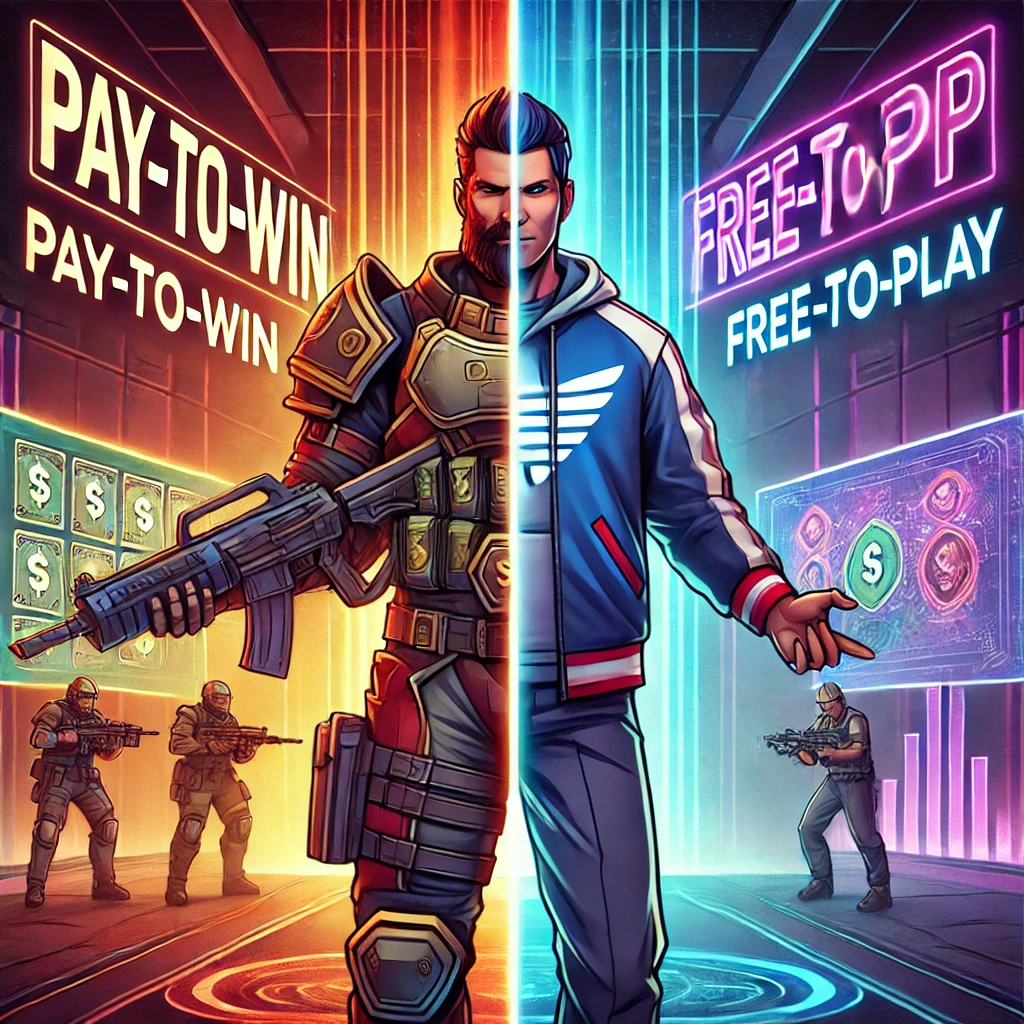
Introduction
The gaming industry has evolved significantly, with monetization strategies becoming a crucial aspect of game development. One of the most debated topics in online gaming is the distinction between Pay-to-Win (P2W) and Free-to-Play (F2P) models. While F2P games offer accessibility to a wider audience, P2W mechanics can sometimes create an unfair advantage. This article explores the differences between these models, their impact on gaming experiences, and the ongoing debate surrounding game monetization.
Understanding Free-to-Play (F2P) Games
Free-to-Play games are designed to be accessible without an upfront cost. Players can download and enjoy the game without mandatory purchases, though optional transactions may be available.
1. How Free-to-Play Works
F2P games often generate revenue through in-game advertisements, cosmetic purchases, or optional in-game currency. Some popular examples include Fortnite, Apex Legends, and League of Legends.
2. Advantages of Free-to-Play
- Allows a larger player base to participate without financial barriers.
- Encourages fair competition where skill determines success.
- Regular updates and expansions keep the game fresh and engaging.
3. Challenges of Free-to-Play
- Developers may introduce monetization tactics that feel intrusive.
- Some games rely on excessive ads or aggressive microtransactions.
- Balancing free and premium content can be difficult.
Understanding Pay-to-Win (P2W) Mechanics
Pay-to-Win refers to games where players can purchase advantages that significantly impact gameplay. These advantages may include stronger characters, better equipment, or faster progression.
1. How Pay-to-Win Works
In P2W games, premium purchases often provide direct competitive advantages, making it difficult for non-paying players to compete effectively. Popular examples of P2W elements can be found in mobile strategy games and some MMORPGs.
2. Advantages of Pay-to-Win
- Can accelerate progress for players who don’t have time for grinding.
- Generates higher revenue for developers, leading to better game updates.
- Offers premium content for players willing to invest.
3. Challenges of Pay-to-Win
- Creates an unfair playing field where spending money determines success.
- Can alienate non-paying players, reducing long-term engagement.
- Often leads to negative reception from the gaming community.
The Impact on Gaming Communities
The monetization model of a game can significantly affect its community and overall experience.
1. Player Retention and Satisfaction
Games that balance F2P and monetization effectively retain players longer, as satisfaction levels remain high. Conversely, excessive P2W mechanics can drive players away.
2. Competitive Integrity
F2P games with fair monetization maintain competitive integrity, ensuring that victory is based on skill rather than financial investment. In contrast, P2W mechanics may discourage competitive players from participating.
3. Ethical Considerations
Many argue that aggressive monetization strategies exploit players, particularly younger audiences. Ethical game design focuses on providing value without pressuring excessive spending.
Finding a Balanced Approach
Many developers attempt to find a middle ground between P2W and F2P by offering fair monetization systems.
1. Cosmetic-Only Microtransactions
Some games generate revenue through cosmetic items that do not impact gameplay. Skins, emotes, and character customizations are popular examples.
2. Season Pass and Battle Pass Models
Games like Fortnite and Call of Duty offer battle passes that provide rewards without disrupting game balance.
3. Skill-Based Progression
Ensuring that premium items do not offer a direct advantage but rather enhance the gaming experience can help maintain fairness.
Conclusion
The debate over Pay-to-Win versus Free-to-Play will likely continue as the gaming industry evolves. While P2W mechanics can generate significant revenue, they can also harm player satisfaction and fairness. Meanwhile, well-balanced F2P models allow accessibility and maintain engagement. The key to successful monetization is ensuring fairness, player enjoyment, and ethical practices to keep the gaming experience enjoyable for all.





